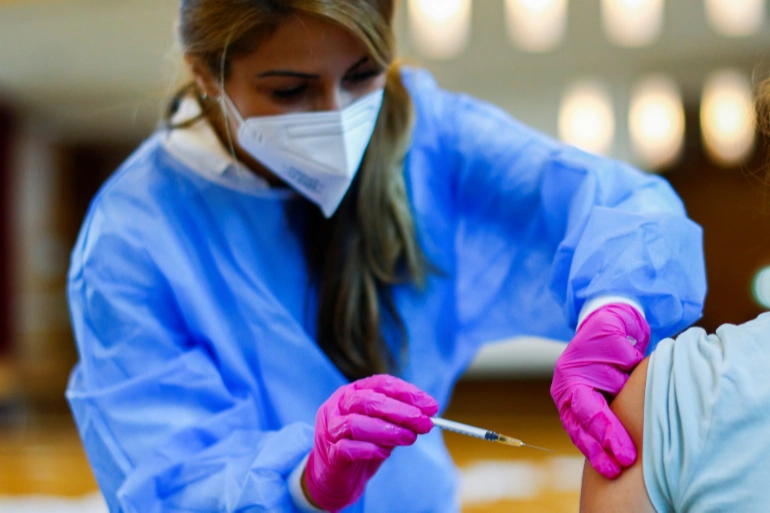
The warning comes as the WHO and UNICEF urged European countries to make teachers a priority group for vaccination so schools can stay open [Thilo Schmuelgen/Reuters]
Geneva, August 31 (RHC)-- The World Health Organization has warned that another 236,000 people could die from COVID-19 in Europe by December 1st, sounding the alarm over rising infections and stagnating vaccine rates on the continent.
Countries across the region have seen infection rates tick up as the highly transmissible Delta variant takes hold, particularly among the unvaccinated.
Poorer nations, especially in the Balkans, the Caucasus and Central Asia, have been hardest hit, and deaths are mounting as well. “Last week, there was an 11 percent increase in the number of deaths in the region – one reliable projection is expecting 236,000 deaths in Europe, by December 1,” WHO Europe director Hans Kluge said on Monday.
Europe has registered about 1.3 million COVID-19 deaths to date and 64 million confirmed cases. Of the WHO Europe’s 53 member states, 33 have registered an incidence rate greater than 10 percent in the past two weeks, Kluge said. Most are in poorer countries.
High transmission rates across the continent were “deeply worrying, particularly in the light of low vaccination uptake in priority populations in a number of countries.” Kluge said the Delta variant was partly to blame, along with an “exaggerated easing” of restrictions and measures and a surge in summer travel.
While about half of people in the WHO’s Europe region are fully vaccinated, uptake in the region has slowed. “In the past six weeks, it has fallen by 14 percent, influenced by a lack of access to vaccines in some countries and a lack of vaccine acceptance in others,” Kluge said, urging countries to “increase production, share doses, and improve access.”
Only 6 percent of people in lower- and lower-middle-income countries in Europe are fully vaccinated, and some countries have managed to vaccinate only one in 10 health professionals.
Kluge stressed that since public health and social measures were being relaxed in many places, “the public’s vaccination acceptance is crucial.” “Vaccine scepticism and science denial is holding us back from stabilising this crisis. It serves no purpose, and is good for no one.”

